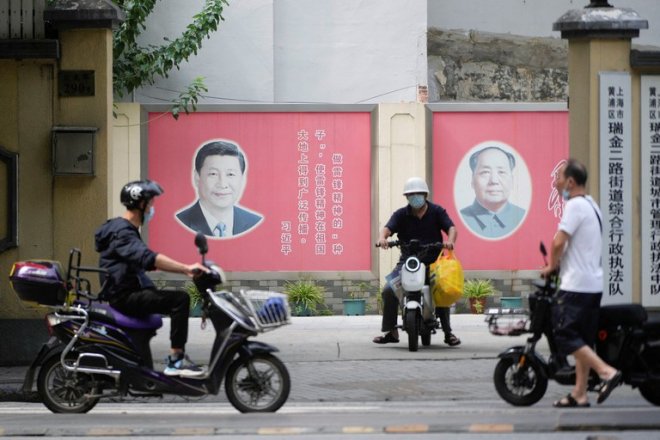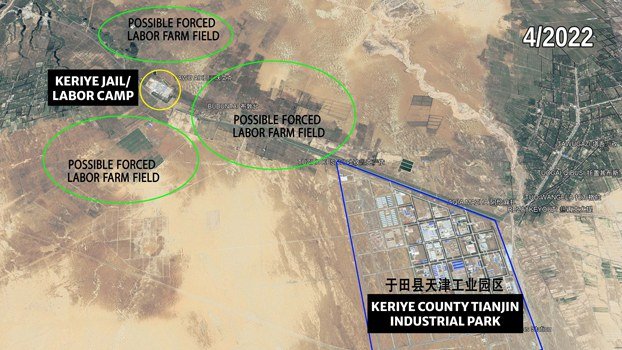China hawk John Bolton to be first 2024 White House hopeful to visit Taiwan
An outspoken China hawk who is seeking the White House is due to become the first 2024 presidential hopeful to visit Taiwan as American political positions toward Beijing harden ahead of next year’s U.S. election.John Bolton, who served as national security advisor to President Donald Trump from 2018 to 2019 and has launched a bid to become the next Republican nominee for president, will deliver remarks at two pro-Taiwanese independence events in Taipei, his office said Friday.
The first is a keynote speech at The World Taiwanese Congress on April 29, with the theme "Maintaining Long Term Peace and Security in Taiwan." The other is a keynote address at the Formosan Association for Public Affairs" 40th Anniversary Banquet on May 1.
The trip comes as U.S. and Chinese officials are facing one of the most explosive moments of their diplomatic relations, with Taiwan at the center of a fierce conflict.
The island considers itself a sovereign state, but Beijing claims it as a part of the People’s Republic of China. The U.S. does not recognize an independent Taiwan, but provides arms for Taiwanese defense.
Meetings between Taiwanese and U.S. officials perennially inflame relations with Washington, as Beijing claims that these events undermine Beijing’s so-called “One China” policy.
Hard line on China
Bolton - who declared his candidacy for president in January - has long advocated for a hard line on China and U.S. recognition of Taiwan as a sovereign nation.
His bid for the White House is considered a long-shot, but his position on China is politically astute. Austin Wang of the University of Nevada, Las Vegas, who studies East Asia politics, said that current polls in the United States show that American voters" unfavorable view towards China is increasing and their support for Taiwan is rising.
“Bolton"s visit to Taiwan as a presidential candidate carries two significant meanings: firstly, it could help him in the primaries of his party, and secondly, it reflects the importance of Taiwan issues for supporters of various political parties,” Wang said.
“This is the most crucial time for the Taiwan issue in the U.S. election, and the first time a presidential candidate has visited Taiwan.”
Tough talk on Taiwan, however, has become a rite of passage for those who are running for office in the U.S., regardless of their political party.
Republicans have been more aggressive in their stance on Taiwan than the Democrats, but members of both of the political parties agree that a robust defense of Taiwan’s autonomy sends an important message: U.S. leaders are standing up for political freedom -- and against the Chinese government on this issue.
But while visits from U.S. politicians can help them burnish an image of being tough on China to American constituents, hard stances like Bolton’s can pose an awkward challenge for hosts in Taiwan, which is due to hold its own election in January 2024.
Although the candidates have not yet been finalized, the ruling Democratic Progressive Party (DPP) suffered a setback in last year"s local elections. On the other hand, the Kuomintang (KMT), which firmly opposes Taiwan independence and is striving to portray itself as the peacemaker across the Taiwan Strait with friendly relations with Chinese officials, sees a glimmer of hope for regaining power.
A recent official poll conducted in Taiwan in March has shed light on the political sentiments of the population. The results show that almost 90% of respondents favor maintaining the status quo, while a meager 5.3% support hastening independence, and a mere 1.1% back expediting unification.
Desire for stability
These findings underscore the prevailing desire for stability and continuity among Taiwanese citizens, and highlight the importance of maintaining the delicate balance of power in the region.
“If a hawkish U.S. presidential candidate visits Taiwan, the impact may not be significant in terms of the visit itself. What is more important is what is done during the visit or what is said in Taiwan,” said Wang, the University of Nevada expert.
“If the U.S. presidential candidate visits Taiwan and publicly states the need to send troops to defend Taiwan, it will be welcomed by the Taiwanese public but will also create tension,” he said.
“This could also further polarize the Taiwanese public"s attitude towards the U.S.”
A spokesperson for the Taipei Economic and Cultural Representative Office in Washington declined to comment on the risks, and possible benefits, of a Bolton visit. “We will continue to promote the deepening of Taiwan-U.S. relations in various fields,” said the spokesperson, “and welcome visitors from all walks of life in the United States to Taiwan.”
Privately, though, Taiwanese officials have spoken of being wary of having to deal with the fallout from even casual remarks made by prominent American visitors during their trips.
Recently, remarks by another former Trump advisor, Robert O’Brien, floating a hypothetical idea about the value of having an assault rifle in Taiwan was turned into an incendiary local headline: "Former U.S. national security director: Taiwan should educate its people to use AK47s."
The headline was amplified by Chinese government officials, who claimed that O’Brien’s remark was a sign that the United States was pushing Taiwan into a military confrontation with China.
But Taiwanese officials may have to brace for further turbulence, as Bolton will not be the only high-profile Republican to visit the island.
Former vice president Mike Pence, also believed to have presidential aspirations, is due to visit in June, according to analysts in Washington. (Pence’s office did not respond to a request for comment).
And just ahead of Bolton’s visit, Virginia Gov. Glen Youngkin - another ambitious Republican - will also be in Taiwan.
[圖擷取自網路,如有疑問請私訊]
|
本篇 |
不想錯過? 請追蹤FB專頁! |
| 喜歡這篇嗎?快分享吧! |
相關文章
AsianNewsCast























